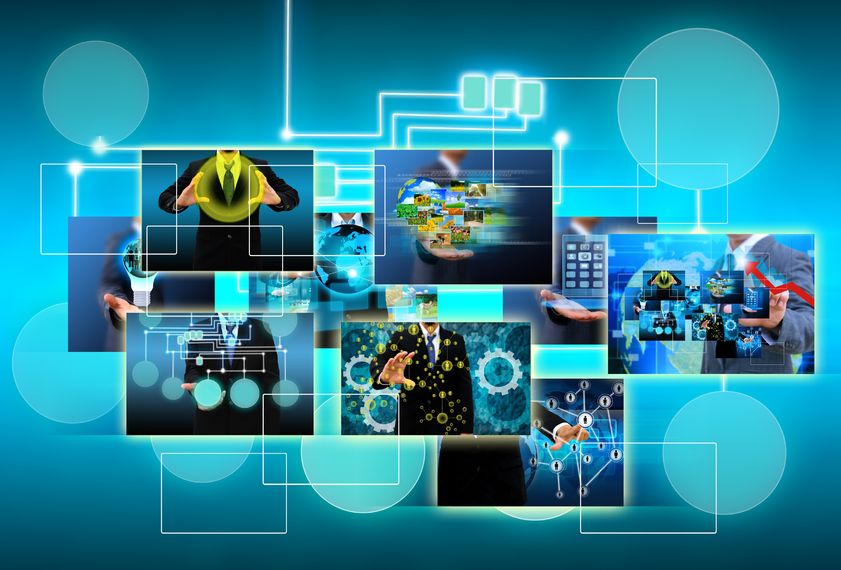Beyond 2019 resolutions: Ushering the year of tech adaptation
By Albert Chai March 29, 2019
- 2019 will be the year where organisations accelerate the adoption of technology
- Enterprises need to be ahead of the innovation cycle and continuously adapt to changes

 OVER the last decade, Malaysia has witnessed new and emerging technologies disrupt all industries while enabling startups and innovative organisations to embrace digital to define and re-define their business models.
OVER the last decade, Malaysia has witnessed new and emerging technologies disrupt all industries while enabling startups and innovative organisations to embrace digital to define and re-define their business models.
More recently in 2018, the nation took another technological stride ahead with the introduction of Industry4WRD, the National Policy on Industry 4.0. This places digital innovation at forefront of business, particularly in the manufacturing sector.
Building on this development, businesses will be deepening their digital commitment, going beyond adopting new technologies to strengthening their entire enterprise ecosystem. If 2018 was a year where organisations explore or adopt cloud computing, artificial intelligence, Internet of Things and cryptocurrencies in various industries, 2019 will be the year where they accelerate the adoption of technology to gain more value for their businesses.
To enable organisations to successfully navigate through the technological landscape of 2019, here are some technology trends and enablers along with relevant and practical prescriptions that enterprises can look into to better equip themselves for the year ahead.
1. Entering a multi-cloud world
Cloud is now the new normal for most major enterprises in any digital transformation effort. More mature cloud adopters are beginning to enjoy the positive outcomes of their early moves, where optimal allocations of IT budgets have freed up resources for innovations and increased agility.
However, businesses are realising that it’s not an ‘either-or’ conundrum when making decision on private or public cloud. It’s both and driven by business, customer and regulatory imperative. Hence, organisations will embrace multi-cloud as a key technology investment strategy where they adopt multiple cloud services from different cloud providers and augmented by their private cloud.
It is estimated that about 93% of organisations will be pursuing a multi-cloud strategy in 2019. However, this will render the management, integration as well as threat monitoring and response more complex as each unique environment introduces new vulnerabilities due to multiple access points and authentication nodes.
Therefore, businesses need to find the right technology partner that brings together networking, security, analytics, and management across environments to help them simplify, secure and optimise their operations.
2. Artificial intelligence
For 2019, we will witness an increased adoption of Artificial Intelligence (AI) with many applications augmented with computing capabilities to assist with human decision-making. In fact, 83% of executives believe that AI is a strategic priority for their businesses today.
Although still in its early stages, we are already witnessing AI’s implementation in various facets of our lives from email spam filters to mobile assistance and even personalised shopping recommendations.
It will continue to redefine our lives as advances are made across areas such as sensory systems, predictive analytics, image analysis, speech recognition and machine learning among others, enabling machines to execute tasks that was only previously possible by humans.
Progressively, we will also see AI becoming commoditised at a faster rate, allowing enterprises to adapt and effectively utilise it as part-and-parcel of their operations. For instance, this could potentially enable better client profiling to help measure intent and behaviour more effectively.
3. Blockchain and cyber-security
Gaining wider recognition in recent years due to the rise of cryptocurrency, blockchain technology is perceived as a more secure way of protecting consumers’ information. This is due to its capability to tamper-proof payment records as transactions are made through decentralised systems.
For businesses, this creates new possibilities beyond just financial transactions as data can also be moved in a blockchain network. As an example, enterprises could stand to gain through storing information and data in a decentralised system as opposed to a centralised one.
The usage of blockchain systems as a resource to move confidential and sensitive data makes it less susceptible to hacking and tampering as it uses digital footprints like nodes and tokens to detect any foul play.
However, there is still a lack of understanding about blockchain, which is why most of today’s blockchain efforts are still in the experimental stage. Those looking for a blockchain framework should ensure that it has these three necessary elements - Simple, Secure and Scalable.
In order to do this, they must consider platforms that are easy to deploy and able to integrate with their existing technology, thus enhancing their overall ease of use. Organisations should also ensure that their platform allows for a holistic security approach with end-to-end protection to block threats on all fronts.
Finally, organisations need to focus on an easily distributed system to allow them to eventually implement their blockchain on a large scale.
2019 is indeed an exciting year to explore the full capabilities of technologies we have begun to adopt in recent years. We will see more and more implementation of these technological trends, especially since we have already observed their use cases.
For enterprises, this means that it is imperative for them to be ahead of the innovation cycle and continuously adapt to the changes that come their way. By doing so, they will ensure that they do not lag behind in the fast-paced world of the digital era.
Albert Chai is the managing director for Cisco Malaysia.
Related Stories :


